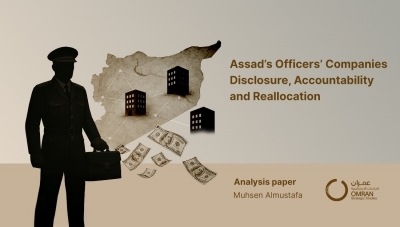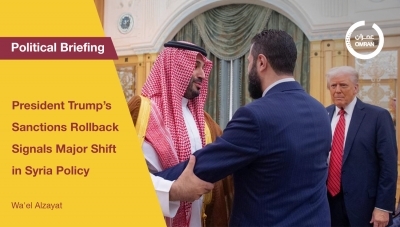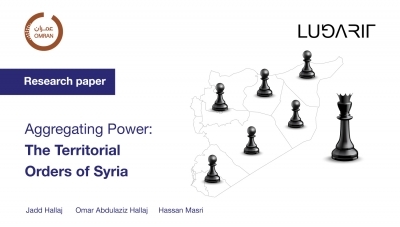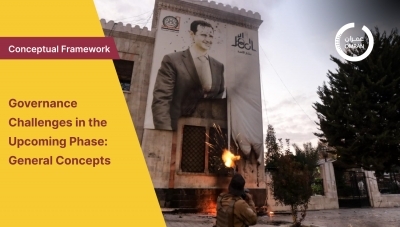Events
Rateb
The 2021 Syrian Presidential Election
The 2021 Syrian Presidential Elections have unanimously been described as a farce. It comes as no surprise that Assad stays in power for a 4th term, gaining 95% of votes. In an analysis of the legal, Syrian regional and international level, this paper sheds light on the many flaws, felonious procedures and violations of international law inherent in the presidential elections. Amongst others, the paper addresses the systematic exclusion of large parts of Syrian constituents, the regime’s deterrence of any real opposition, the lack of a safe voting environment, and therewith, on an international level, the neglect of the entire peace process that seeks a political and not a military solution to the conflict in Syria.
Looking into the near future of post-election Syria, the paper furthermore discusses what the elections mean for both Syrians and the Assad regime including possible strategies Assad might peruse to strengthen his power on a domestic and regional political level. Conclusively, a set of recommendations are provided regarding what the Syrian people may ask from the international community as a response to the 2021 Syrian Presidential Elections.
Anuual Report 2020
Established in 2013 in Turkey with presence in Syria, and an office in Washington, DC.
Publishes in-depth studies, analytical maps, and policy recommendations on Syrian and regional security, politics, economics, and local governance.
Hosts conferences, workshops, and seminars, bringing together scholars from around the world.
Omran's Impact
Through continuous engagement with public opinion and decision makers, providing a range of solutions and policies that drive political change and stability.
Social Engagement
- Reaching approximately 650,000 people interested in Syrian affairs on social media platforms.
- Interacting with 44 local, regional and international media outlets to inform the public on Syrian affairs.
- 26 institutions have republished Omran’s work as a major source of information.
Engagement with Decision Makers
- 51 meetings with representatives of local, regional and international states, and political figures.
- 20 research meetings with a number of think tanks institutions.
- 28 events with local activists (civil society organizations, lawyers, military personnel, and academics).
Research Collaboration
- Training 9 undergraduate and graduate students to improve their skills and research tools.
- Research consultations for 18 researchers working on the completion of studies and research related to the Syrian issue in various political, economic and social aspects.
- 62 events through which the center provided a number of academic lectures and training workshops for a number of youth activists.
- 6 research products published by several Arab and foreign intellectual institutions.
Early Economic Recovery in Opposition-Held Areas During the Second Half of 2020
Executive Summary([1])
During the monitoring period, 812 projects and activities were implemented northern Syria’s opposition-held areas. Those areas include the northern and eastern countryside of Aleppo and Idlib. This marks a 77% increase or 355 additional projects. The economic development sector expanded the most, with 193 projects. This is followed by the WASH sector with 165 projects. 154 projects were also implemented by the transportation and communications sector, as well as 119 projects for the internally displaced.
The report highlighted several trends during the monitoring period. Among the trends identified was the increase of economic activities in Idlib and its countryside by 55% (or 455 projects) compared to Aleppo and its countryside by 45%. (or 367 projects).
Coordination between local councils and non-government organizations continued, with several announcements of MOUs. This included the building of a hospital in the city of Soran, and the support for grain farmers with compound fertilizers and wheat seed in Akhtarin. The report also highlights the increase in job opportunities, most of which were in the health, IDP support in camps, and infrastructure projects. About 947 job opportunities were registered, most holding temporary contracts between 6-12 months.
Projects monitored in the report were further analyzed for strengths and weakness. Among the most notable strengths was the local councils’ focus on securing electricity for hard-to reach areas, in addition to rehabilitating many city centers, main roads, and markets. The most prominent weakness identified was the over-reliance by local councils on economic recovery funding from local and international organizations and only playing an intermediary role due to its limited budgets.
Based on findings, the report outlined a set of recommendations. Prime among recommendations was to enhance a holistic development strategy to include sectors that lack support and have not received adequate attention in the last period. The recommendations also highlighted the need to expand programs such as “Cash for work” and “e-voucher” that support small businesses and handcraft projects.
([1]) Original paper published on March 15, 2021, in Arabic, https://bit.ly/3fhHMrU
Navvar Saban | Iran Is Trying to Convert Syria to Shiism
Navvar Saban, a field expert at the Omran Center, said in his recent interview with FP "foreign policy" Since 2017, Iran focused on building and enhancing their relationships with different Syrian communities. It carried out its operations with a different approach towards infiltrating local communities, especially by purchasing real state in different provinces. Recently, Iran has been purchasing more properties in Deir Ezzor, in both regime and SDF held areas.
for more: http://bit.ly/3ceL8tY
Attempts for a New Political Framework NE Syria: Motives and Challenges
After taking control east of the Euphrates, the Autonomous Administration (AA) has endured a host of challenges, including the overcrowding of various actors and its relation with local communities. In an effort to obtain political legitimacy, international recognition, and preserve its military gains in the field, the AA is seeking the formation of a new political framework. The proposed structure would include opposition figures and entities.
The move is motivated by a number of internal and external motives. Internally, a new, more inclusive political umbrella may unify the various Kurdish political groups. By creating an inclusive front, the AA may be able to monopolize the representation of Kurdish people in Syria, and contain local (non-Kurdish) groups. Most locals perceive the members of the PKK “Cadres” as the dominant actor behind the AA, with local governance structures existing powerlessly. This is due to the “Cadres” control over decision-making and deeply entrenched within the AA and all its institutions. Therefore, a more inclusive and representative political umbrella may alter this perception among locals.
Externally, the new AA political framework may strengthen the AA’s position to negotiate with Russia and the Syrian regime. A united front may provide the AA with a more compelling argument for the type of autonomy being proposed in northeast Syria, despite the Syrian regime’s reluctance to accept. Secondly, by restructuring, the AA may signal the gradual withdrawal of foreign PKK members from northern and eastern Syria, providing assurances to Ankara and showcasing desire to hold peace talks with Turkey. This may mend the relationship between the AA and Turkey preventing any new military operations. Lastly, through the initiative the AA would exhibit its intention to not obstruct Washington’s goals in Syria.
The initiative to form a new political umbrella east of the Euphrates may result in several scenarios. The AA will seek to adopt and improve its positioning, while mitigating potential losses.
- The first scenario could be that the AA reaches a consensus with the Kurdish National Council and the key opposition forces, and meet them under the new political umbrella. However, this scenario is highly unlikely in the near future, as many substantial challenges still prevent its occurrence.
- The second potential scenario could be that the status quo remains. Military clashes with Turkey and National army continues, while assistance and presence of the United States to prevent military incursions persist.
- Based on the current dynamics of the “Autonomous Administration", the most likely scenario would be to reinforce understandings with the Moscow and Cairo platforms, as well as with opposition figures not associated with the Government of Turkey, in order to arrange "qualitative agreements" in preparation for joining the new political umbrella. The attempts will plan to formalize the representation of local components without affecting the centralized decision-making of AA.
([1]) Original paper published on March 4, 2021, in Arabic, https://bit.ly/3qRhG1j
Dr. Ammar Kahf | Participation in TRT World Forum Expert Roundtable
Dr. Ammar Kahf, Executive director of the Omran Center for Strategic Studies Participated in TRT World Forum Expert Roundtable
while talking about "The Future of the Arab World: 10 years after the Arab Spring"
for more:https:https://bit.ly/3mCrsCp




